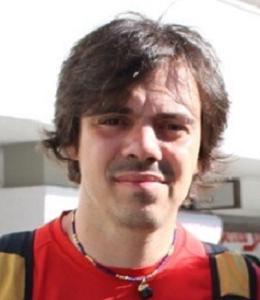
Biography
I was born in Alessandria, Italy, where I first became acquainted with Greek and Roman history attending the local Liceo Classico.
I took BA (2006) and MA (2008) degrees in Classics at the Università degli Studi di Torino (studying at the Collegio Einaudi), after which I moved to Durham University for three years. There I received a PhD in Classics and Ancient History (awarded in January 2012).
After my viva in 2011 I moved to Athens for a few months, as School Student at the British School at Athens, before taking up an Alexander von Humboldt Post-Doctoral Fellowship in Mannheim in 2012. I moved to Edinburgh in 2013 to take up a Chancellor’s Fellowship in Classics.
In 2014 I have been appointed Member of the Royal Society of Edinburgh Young Academy of Scotland and as of January 2015 I am Co-Chair of the Arts and Humanities in Society Working Group. In 2015 I have been awarded a Philip Leverhulme Prize in recognition of my research achievements.
Project
During my time at IASH, I shall concentrate on one main project, which will result in my next monograph. This will analyze the development of legislative practices in Athens, and the underlying ideologies that shaped them. It will explore how legislation developed consistently with ideas about lawmaking embedded in relevant institutions from their earliest stages. This approach seeks to do justice to these sophisticated institutions, viewed by the Athenians as central to their democracy and to the construction of the ethos of the city through its laws. The monograph will also explore how the Athenians mediated the tension between the need for consistency and stability in their laws, and the issue of growing popular sovereignty. It will therefore contribute to modern debates on the dignity of legislatures against the need for expert judicial review, showing how the Athenians resolved these issues into a system that gave the people sovereignty, but also made sure that the demos would take into account different considerations, in different institutional contexts.
